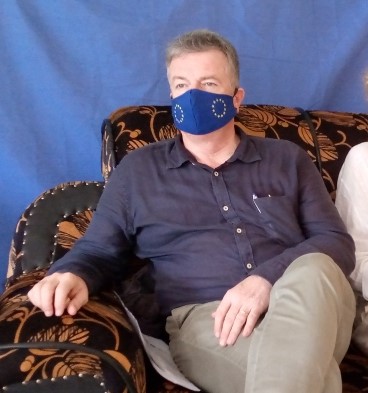JOHN RIVER CITY, Grand Bassa – February 6 marked the International Day of Zero Tolerance for Female Genital Mutilation. Government officials and representatives from the European Union and the United Nations gathered at the Fortville City Hall to commemorate the event.
The day originated on December 20, 2012 after a U.N. General Assembly Resolution called on member states to identify global efforts to eliminate female circumcision and raise awareness on the practice. The resolution recognized female circumcision as a violation of the human rights of women and girls reflecting deep-rooted inequality between the sexes and constitutes an extreme form of discrimination against women.
Globally, it is estimated that some 200 million girls and women alive today have undergone some form of female circumcision. Although the practice is declining in the majority of countries where it is prevalent, an estimated 68 million girls are at risk of being mutilated by 2030.
Liberia’s celebration brought together officials from the Ministry of Internal Affairs; the Ministry of Gender, Children, and Social Protection; the National Traditional Council of Chiefs and Elders; as well as representatives from the European Union Delegation in Liberia, U.N. Women, and civil society organizations.
Delivering the keynote address, Gender Minister Williametta E. Saydee-Tarr commended the government, the E.U., the U.N., and traditional leaders for their continuous commitment to working together to see female circumcision eradicated in Liberia.
She called on religious leaders, the youth, and traditional leaders to take ownership of the fight against female circumcision by building consensus.
“While we continue to engage on zero tolerance for FGM, I would like to highlight that changing cultural norms and beliefs must come from within the community itself – the community itself needs to rally around and take ownership of the fight,” Saydee-Tarr said.
The program drew attention to the E.U.-funded Spotlight Initiative, a four-year program launched in 2019 to reduce the prevalence of sexual and gender-based violence and increase women’s and girl’s access to sexual and reproductive health and rights. Spotlight Initiative is being implemented in the five most affected counties, including Montserrado, Lofa, Grand Gedeh, Nimba, and Grand Cape Mount.
The gender minister noted that the Spotlight Initiative was rolling out an Alternative Economic Livelihood Program in Grand Cape Mount that would teach new skills to traditional practitioners of female circumcision who operate bush schools. In doing so, the program hoped to eliminate the financial incentive for continuing to practice female circumcision.
Saydee-Tarr said the second phase of the program would include the rest of the counties that have not yet benefited from the first phase.
Marie Goreth Nizigama, the country representative for U.N. Women, emphasized the pitfalls of female circumcision, nothing that survivors can often suffer from illnesses as a result of the operation. Sometimes, these illnesses can lead to death, she said, pleading to the public to join the fight against the practice.
The E.U. ambassador, Laurent Delahousse, emphasized the dwindling number of African countries in which female circumcision is still legal: “Today in Africa, 41 countries used to practice FGM, but 37 have banned the practice – only 4 countries still practicing, and Liberia is among those.”
While he said the Liberian government was taking some meaningful steps in its attempt to eliminate the practice, he added, “The government cannot work alone, and it is not for the international community to impose things – it is for you, the people of Liberia, to change this practice. It is for your traditional leaders, the elders, and the women to work together.”

European Union Ambassador Laurent Delahousse. Photo: Sampson David
The head of the National Traditional Council of Chiefs and Elders, Zanzan Karwor, recommended that the Spotlight Initiative be extended to all 15 counties in Liberia to ensure that the fight against female circumcision is not undermined.
Featured photo by Sampson David


